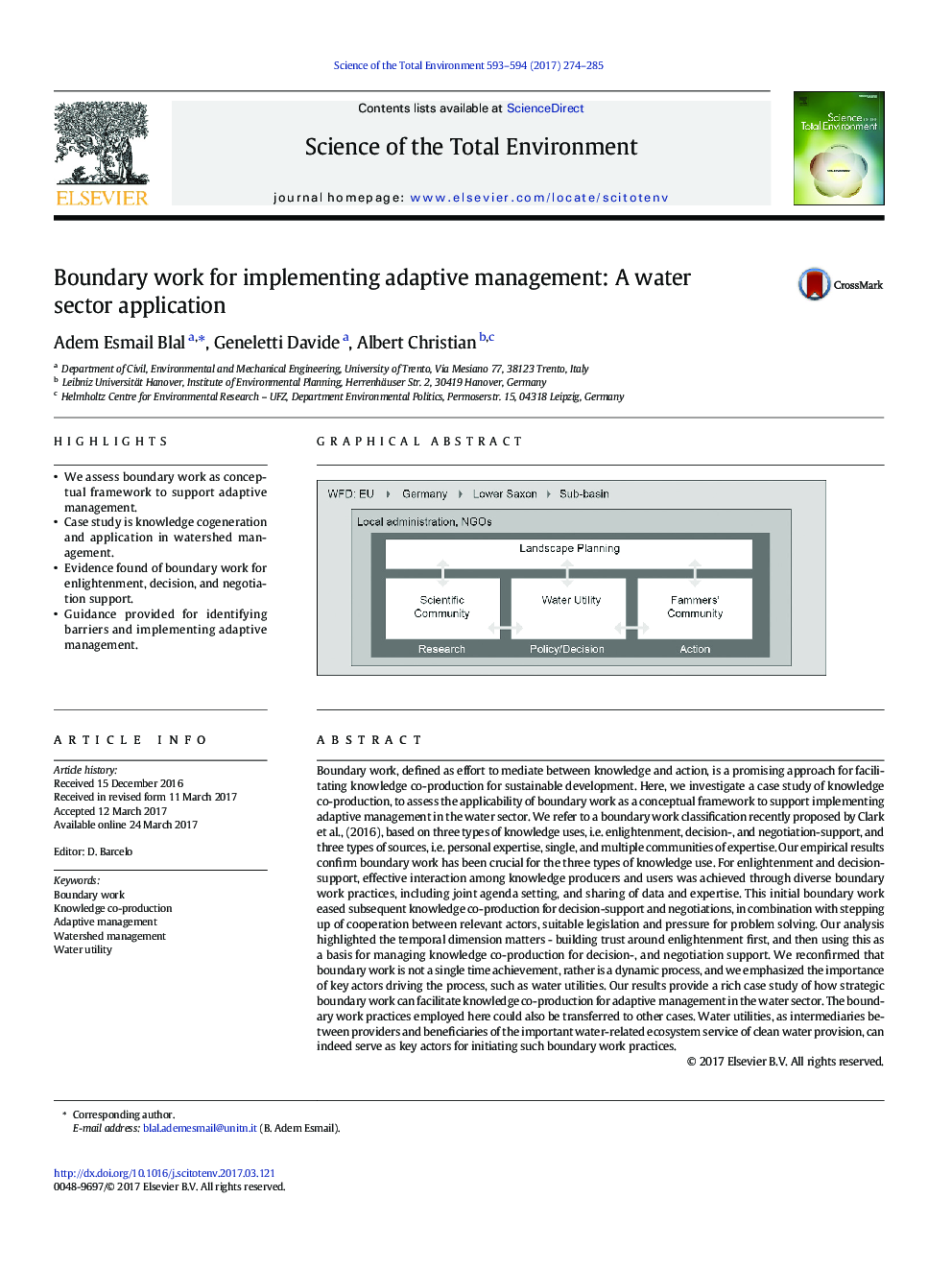| کد مقاله | کد نشریه | سال انتشار | مقاله انگلیسی | نسخه تمام متن |
|---|---|---|---|---|
| 5750855 | 1619702 | 2017 | 12 صفحه PDF | دانلود رایگان |
- We assess boundary work as conceptual framework to support adaptive management.
- Case study is knowledge cogeneration and application in watershed management.
- Evidence found of boundary work for enlightenment, decision, and negotiation support
- Guidance provided for identifying barriers and implementing adaptive management
Boundary work, defined as effort to mediate between knowledge and action, is a promising approach for facilitating knowledge co-production for sustainable development. Here, we investigate a case study of knowledge co-production, to assess the applicability of boundary work as a conceptual framework to support implementing adaptive management in the water sector. We refer to a boundary work classification recently proposed by Clark et al., (2016), based on three types of knowledge uses, i.e. enlightenment, decision-, and negotiation-support, and three types of sources, i.e. personal expertise, single, and multiple communities of expertise. Our empirical results confirm boundary work has been crucial for the three types of knowledge use. For enlightenment and decision-support, effective interaction among knowledge producers and users was achieved through diverse boundary work practices, including joint agenda setting, and sharing of data and expertise. This initial boundary work eased subsequent knowledge co-production for decision-support and negotiations, in combination with stepping up of cooperation between relevant actors, suitable legislation and pressure for problem solving. Our analysis highlighted the temporal dimension matters - building trust around enlightenment first, and then using this as a basis for managing knowledge co-production for decision-, and negotiation support. We reconfirmed that boundary work is not a single time achievement, rather is a dynamic process, and we emphasized the importance of key actors driving the process, such as water utilities. Our results provide a rich case study of how strategic boundary work can facilitate knowledge co-production for adaptive management in the water sector. The boundary work practices employed here could also be transferred to other cases. Water utilities, as intermediaries between providers and beneficiaries of the important water-related ecosystem service of clean water provision, can indeed serve as key actors for initiating such boundary work practices.
187
Journal: Science of The Total Environment - Volumes 593â594, 1 September 2017, Pages 274-285
